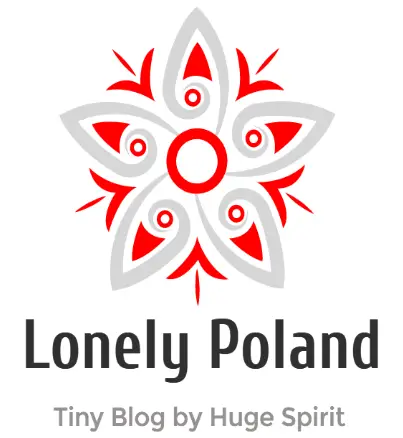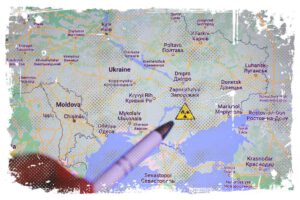Everything began more than a thousand years ago. One of the Slavic tribes who settled in the Warta basin (near Gniezno) began to be called Polans. It made sense, because they lived on the fields and worked in that territory. „Pole” in the Polish language means „field”. So simply, these were described as people who worked in the fields. They were called the Polan tribe, while the land on which they settled was called „Polan land”. In the Polish language, it was „ziemia polanska”.

The shorter form became popular later (the particle „ań”- was dropped from the form pol-an-ski). Since then, the term „Polska„, which means „land inhabited by Polans”, entered into general usage, and thus the adjective „Polanski” was eliminated for good.
Since there was a word „Polans” (in Polish „Polanie”), it was needed to name somehow the land where these people lived. Therefore, in Latin documents appeared the terms:
- „Poloniae regio” (province of the Polans)
- „Regnum Poloniae” (kingdom of the Polans)
- „terra Poloniae” (land of the Polans)
Later, they started using the final version, „Polonia”. Surprisingly, this name no longer „belonged” to the Polans, meaning not only to the people living in the Warta River basin. Instead, it also refers to the Vistulans, Mazovians, Kuyavians, Pomeranians or Slezanians. Geographically, this new name covered a much larger area.
↳ PRO TIP: Do you like traveling? Then before you buy any ticket or book an attraction, check if it's available in this worldwide Viator Database. You may save a lot of money and time. No need to thank me :)
The expressions Poland (Polska) and Pole (Polak) entered into the language as late as in the 16th century. For this to happen, however, the meaning of the adjective „Polish” had to change. As I mentioned, the word was understood differently a few centuries ago. Word „Polish” (Polski) meant „associated with the field”. So there were:
- polish plants
- polish vegetables
- polish flowers
All plants growing 'in the field’.
From this adjective form, they decided to make a noun, „Poland”. Since from the expression „ziemia polska” („land, where there are many fields”) the term „ziemia” (field) was dropped and the form Poland (Polska) became popular on its own, they had to create another adjective which would take over the missing meaning related to the fields. The new word was „Polny”, which in direct translation today means „associated with the field”.
From now on, there was a differentiation: „polny” was understood as „related to the field”, while „polski” could easily refer to the name of the country, „Poland”. The name Poland quickly received additional inflections such as „Polski”, „Polsce”, „Polskę” and so on.
Why Do We Have Greater Poland and Lesser Poland?
Territorially, the second region is much larger. Again, this has a historical explanation. It happened like this because in the 10th–11th centuries, there was officially the name Polonia to describe the whole country. The dukes of the lands around Gniezno and Poznan were constantly emphasizing their right to sovereignty over the whole country. In order to do so, they used the names „Polonia Maior” (Elder Polonia) or „Polonia Magna” (Great Polonia) to describe which party of the country they are talking about.
It brought the name Polonia Minor, since there was already a „Polonia Maior”. It was used to designate the lands of Kraków, Sandomierz, and Lublin. When the name Poland became popular in the 16th century, the terms Polonia Maior (Polonia Magna) and Polonia Minor were translated into Greater Poland (Staropolska in the past) and Lesser Poland.
When Was „Poland” Mentioned in Writing?
One of the earliest references to Poland came from John Canaparius, abbot of the Roman monastery of St. Boniface and St. Alexius. It was between 997 and 1003. He mentioned Sobieslaw (Sobiebor) Slavnikovic, who marched armed „cum Bolizlauo Palaniorum duce” (meaning „with Boleslaw the Polish prince”).
In 1003, the name Poland was mentioned in the Annales Hildesheimenses (which is part of the Saxon History). This is done in the paragraph „Heinricus Berthaldi comitis filius, et Bruno frater regis, et ambo Bolizavones, Polianicus vide licet ac Boemicus, a rege infideliter maiestatis rei deficient”.meaning, „Henry, son of Berthold, and Bruno, brother of the king, and both Boleslavs, Polish and Bohemian, are in the Emperor’s circle of friendship”.
It Is Worth Keeping in Mind That:
1. The name „Poland / Polska” comes from the name of the Slavic tribe of Polans. Poland is the
„Land of the Polans”.
2. The name „Poland / Polska” indirectly comes from the word „field”, also meaning „The Land of Fields”.
3. Poland was established in the second half of the tenth century.
4. Mieszko I, the initiator of the Piast Dynasty, was the first ruler of Poland.
5. As one of the most important dates in Polish history, the year 966 is the date of the so-called Baptism of Poland and the country’s international acknowledgment.
What does “Poland” mean in Hungarian language?
The Hungarians have the nicest way of talking about our country (and it’s hardly to be wondered, because after all: “Pole and Hungarian are two pals…” as we say). They call Poland “Lengyelorszag” which means: “Country of Lords of Angels” (a “Pole” is Lengyel in Hungarian, meaning Lord of the Angels).
What do Some Other Countries Call Poland?
The name of our country sounds similar in most places in the world. In Czech Republic they say “Polsko”, in Germany and Scandinavia “Polen”, in England “Poland” and in Hawaii “Pōlani”. However, one can encounter such exotic-sounding names as “Gwlad Pwyl” or “Ba Lan”.
What Was it the Polans Believed In?
The Slavs tribes believed in a significant number of demons, who were worshipped at home or outdoors. They were familiar with the idea of a god or multiple gods who were superior to demons by the power they had. According to Prof. Stanislaw Urbańczyk, the god of the Slavs was the lord of the sky, the sun and fire.
The Slavs also worshipped trees, rivers and streams. They did not build temples, while all religious functions were carried out by priests. They offered food as sacrifices to the gods and deities, to curry favor with good spirits but also to avoid exposing themselves to the wrath of demons. It is uncertain whether animals or humans were also offered as sacrifices.
Who Were the Ancestors of the Poles?
They were the Scandinavian Varangians, who came from Kievan Rus in the first decades of the 10th century. They were backed by Vikings from Pomerania, in particular from Wolin, in the second half of that century.

Polanian Mythology
Polanska Mythology (or Slavic Mythology) – is a name describing Slavic beliefs cultivated in the territories of today’s Republic of Poland and Lusatia. Nowadays it is being still practiced by some Rodzimowier associations. Polish Mythology refers to the beliefs of the Polan, Slezan, Pomeranian and Vistula tribes.
Bibliography:
- https://en.wikipedia.org/wiki/Bibliography_of_the_history_of_Poland
- https://www.library.illinois.edu/ias/spx/slavicresearchguides/nationalbib/polbib2/



